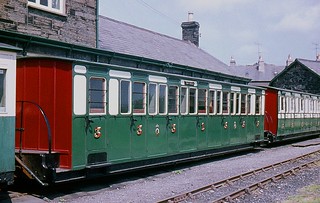It is not uncommon for volunteers to travel considerable distances (often hundreds, and in some cases, thousands of miles), pay for their accommodation, and buy their own uniforms, overalls etc. While some lines do provide subsidised accommodation in their own hostels, even the most well-off preserved railway that attempted to recoup all their volunteers' expenses, let alone pay them a wage, would rapidly go bust. The important thing is to make it attractive enough for people to be prepared to put in the time, effort and expense.
Like those who volunteer for the Inland Waterway Association, the National Trust, and a host of other voluntary-supported bodies, volunteers on preserved railways do so because they feel there is something worthwhile that needs doing that wouldn't be done on a purely commercial basis. The RNLI is perhaps the most extreme example of this, where the volunteers regularly put their own lives at risk. If your logic were applied to the RNLI, which is also a multi-billion pound business employing volunteers in coastal areas crying out for jobs, and it dispensed with its volunteers and used mainly paid staff, then it certainly couldn't support anywhere near the number of lifeboat stations that it currently does.
The RNLI is actually a very good example. It shows that you can rely on volunteers to provide a 24-7 service, run to professional standards. RNLI volunteers are expected to meet its high standards, and get a sense of achievement through achieving those standards. The same applies on the preserved railway that I volunteer for: you are expected to achieve its standards, and part of the enjoyment is the sense of achievement of a good job well done. There are people for whom this ethos doesn't fit, and who have found their place elsewhere. However, lines who tolerate a more laissez-faire kind of attitude are undoubtedly finding life increasingly harder.
There is an art to managing volunteers, and there was a very interesting programme on Radio 4 recently on just this subject. Volunteers will often put in considerable time, effort and expense. However, volunteers will only keep coming back if they enjoy their time volunteering, and a key part of managing volunteers is recognising this. It does NOT mean that you have to tolerate lower standards from volunteers. However, whereas you can expect paid staff to undertake certain unpleasant tasks because it is part of what they get paid for, managers who apply this kind of thinking with volunteers are soon going to find themselves short of volunteers.

 R665. No.15 at Portmadoc. June, 1961.
R665. No.15 at Portmadoc. June, 1961.